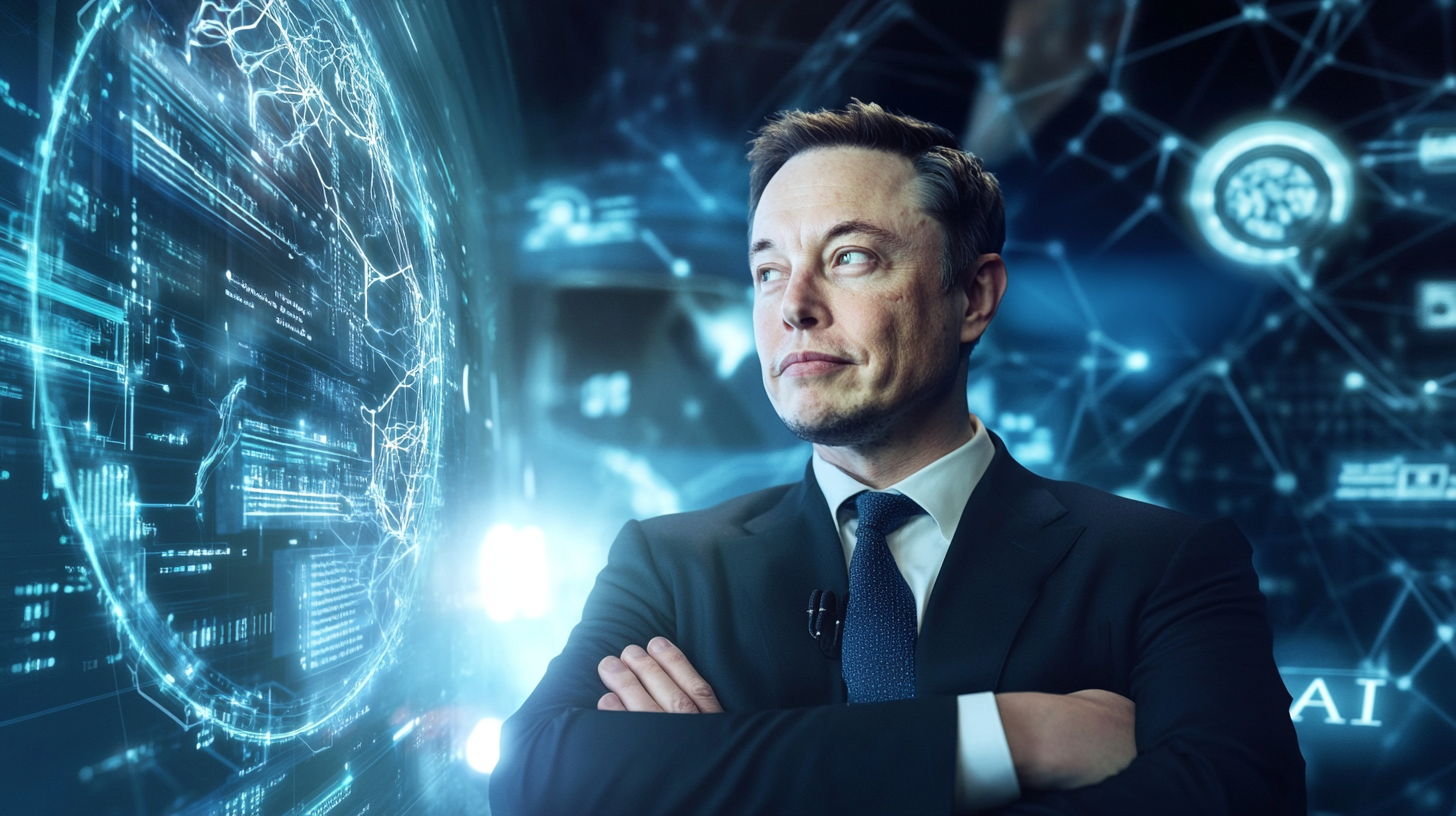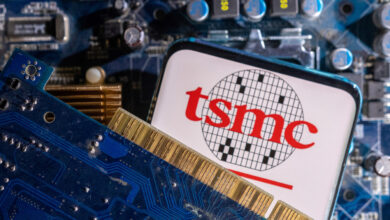Meta’s Midlife AI Crisis, Why Zuckerberg’s Betting Big On A 28-Year-Old Billionaire?
By placing Wang at the helm, Zuckerberg is betting on the man whose startup became a quiet powerhouse behind the AI boom.

In what could be the boldest move yet in the escalating artificial intelligence war, Meta has announced the creation of a new AI research unit tasked with one mission: to build superintelligence.
And to lead this push, CEO Mark Zuckerberg has chosen 28-year-old Alexandr Wang, the billionaire founder of Scale AI – a company best known for supplying the training data that fuels the world’s most advanced AI models.
The decision is as much about reclaiming lost ground in the AI race as it is about making a moonshot bet on the future of artificial general intelligence (AGI) or, more provocatively, superintelligence, an AI capability that could surpass the collective intellectual power of all humankind. Once considered the stuff of science fiction, “superintelligence” is now being used as a magnet to attract elite AI researchers and signal serious long-term intent.
But the road ahead is anything but smooth.
Zuckerberg’s Desperation for an AI Breakthrough
Zuckerberg is reportedly frustrated by the internal stumbles Meta has suffered over the past year, especially with the lackluster performance of Llama 4, its latest large language model (LLM), which critics slammed for being rushed, opaque, and underwhelming.
According to latest reports, Zuckerberg is now personally involved in reviving Meta’s AI momentum. He’s hosting AI experts at his homes in Lake Tahoe and Palo Alto, reorganizing floor plans at Meta HQ to put the new team within earshot of his office, and even repurposing the company’s $130-billion ad business to bankroll the new initiative.

Enter Alexandr Wang – Data King Turned AI Architect
By placing Wang at the helm, Zuckerberg is betting on the man whose startup became a quiet powerhouse behind the AI boom. Scale AI built its empire by organizing an army of data labelers – human and machine – to generate high-quality training data, the lifeblood of LLMs. It also helped firms like Meta and OpenAI fine-tune their models and power military-grade applications.
Wang’s credibility is undeniable. Since founding Scale AI in 2016, he has amassed a fortune, secured Pentagon partnerships (including Meta’s “Defense Llama” project), and argued that data, not just compute power, is the next frontier of innovation in AI. Now, as Meta enters investment talks to pour billions into Scale AI, the partnership appears to be about more than talent acquisition; it’s about reshaping Meta’s AI playbook.
A War on Two Fronts – Internal Division and External Competition
However, internally, Zuckerberg’s aggressive new project has reignited tensions within Meta’s research ranks. The company’s respected FAIR lab (Fundamental AI Research), led by renowned scientist Yann LeCun, has long pursued AI advancements – but without buying into the current hype around AGI. In fact, LeCun has often ridiculed the very notion of superintelligence and expressed skepticism that LLMs alone can get us there. He prefers to focus on advanced machine intelligence (AMI) – a more methodical, longer-term vision of human-aligned AI systems.
LeCun’s public statements and FAIR’s recent staff departures – including Joelle Pineau, former FAIR head – suggest an internal philosophical rift. And now, with Wang’s new lab being built outside FAIR and directly reporting to Zuckerberg, questions – Is FAIR being sidelined? Is this a pivot from science to strategy?
Externally, the AI talent war is fiercer than ever. Despite offering reportedly eye-watering compensation packages, sometimes in the range of seven to nine figures, Meta continues to lose top candidates to OpenAI and Anthropic. In the past year alone, it lost core contributors like Devi Parikh, Abhishek Das, and Dhruv Batra, who went on to found the AI agent startup Yutori. Others like Damien Sereni (PyTorch lead), Boris Cherny (now at Anthropic), and developers reportedly poached by Thinking Machine Labs, led by former OpenAI CTO Mira Murati, indicates Meta’s growing brain drain problem.

A Playbook Inspired by Rivals
Meta’s approach to integrating Wang and his Scale AI colleagues resembles a now-familiar playbook used by Big Tech to gain AI firepower without triggering antitrust alarms. Microsoft used this strategy with Mustafa Suleyman and Inflection AI. Amazon followed suit with Adept AI. Google did the same with Noam Shazeer of Character AI.
By avoiding outright acquisitions, these companies skirt regulatory scrutiny while absorbing key talent, technology, and intellectual property and Meta appears to be playing from the same rulebook.
The Clock Is Ticking and the Field Is Crowded
Meta’s AI push is unfolding amid a broader scramble across Silicon Valley.
OpenAI, backed by Microsoft, remains the front-runner with ChatGPT. Google DeepMind continues to innovate. Anthropic has gained traction with its Claude models. Even Apple (long cautious) has finally stepped into the AI arena. And Elon Musk’s xAI is positioning itself as a serious contender.
Each of these players sees AI not as an optional add-on, but as an existential pillar. For Meta, Llama’s open-source strategy was a bid to make its models the “Android of AI” – a free, extensible base for global developers. But Llama 4’s rocky reception has jeopardized that vision, while China’s DeepSeek and other open-source challengers close the gap.
OpenAI, Google, Meta & the Ruthless Battle to Shape Tomorrow
Artificial intelligence is no longer just a buzzword, it’s the front line of the most aggressive tech battle in decades. The AI race is redefining how companies form alliances, build products, and even undercut each other in pursuit of dominance. And in this fight for the future, every major tech titan is rewriting the rulebook.
This isn’t just about smarter chatbots or futuristic productivity tools; it’s about who gets to define intelligence in the 21st century and who owns the infrastructure, models, and talent to build the brains of tomorrow.

OpenAI – The Disruptor Trying to Go Independent
OpenAI may have started with lofty nonprofit ideals, but today its a commercial juggernaut with ChatGPT at its core, a product that has redefined how the world sees generative AI.
Backed heavily by Microsoft, who has pumped in over $13 billion, OpenAI built its empire on Azure cloud infrastructure. But now, it’s trying to reduce its dependency. A surprise deal with Google Cloud shows just how far OpenAI is willing to go to scale its compute capacity, even if it means partnering with a direct competitor.
OpenAI is also making moves to design its own AI chips, partner on trillion-dollar infrastructure efforts like Project Stargate, and expand deals with AI-specialized cloud providers like CoreWeave. The message – OpenAI wants to be its own master.
But as it grows, it’s also sparking fear. Google, for instance, now finds itself powering part of ChatGPT’s backend while trying to defend its search dominance from ChatGPT’s relentless rise.
Google – Fighting on Multiple Fronts
Google was once seen as the undisputed leader in AI research. It developed transformer architecture, the backbone of modern LLMs, and helped incubate DeepMind’s breakthroughs in reinforcement learning. But OpenAI’s meteoric rise and the viral success of ChatGPT caught it off guard.
Enter Gemini – Google’s large language model family built by combining the strengths of DeepMind and Google Brain. It’s the company’s answer to GPT-4, and it’s being tightly integrated into everything from Android to Search.
At the same time, Google Cloud’s unexpected deal with OpenAI reveals another layer of strategy: if you can’t beat them yet, power them and profit.
But there’s a paradox at play 0 Google is aiding the growth of a rival that threatens its own core business. This uneasy truce shows just how complex and fragile the AI ecosystem has become.
Meta – From the Metaverse to a ‘Superintelligence’ Pivot
While OpenAI and Google lead the AI narrative, Meta is trying to rewrite its own story. After a multibillion-dollar bet on the metaverse failed to capture the public imagination, CEO Mark Zuckerberg has now thrown himself headfirst into the AI war – with urgency and ambition.t.

Anthropic, xAI, Apple, and the Others in the Arena
Meanwhile, Anthropic, backed by Google and Amazon, continues to play the dark horse with its Claude family of models. Its focus on AI safety and interpretability appeals to enterprise users wary of black-box models.
Elon Musk’s xAI is another wildcard. While still nascent, it enjoys direct access to Tesla’s real-world data, X’s user base, and massive compute from Oracle. Musk’s goals are as usual, grand: build a “maximum truth-seeking AI.”
Apple, late to the party, finally unveiled its AI intentions in mid-2025, integrating “Apple Intelligence” into iOS and macOS. But for now, it’s more a defensive play—meant to safeguard the iPhone ecosystem from being disrupted by cloud-based AI agents.
The Final Frontier – Compute Is King, Not Code
Beneath all the flashy product launches and billion-dollar investments lies one inescapable truth: AI is starving for compute. And whoever controls the GPUs, the chips, and the cloud data centers wins the war.
That’s why we’re seeing the most unlikely alliances: OpenAI using Google Cloud. Microsoft luring away founders of rival startups like Inflection. Amazon scooping up talent from Adept. Google trying to reclaim old stars from Character AI. Meta betting the house on a 28-year-old data entrepreneur.
The AI revolution is about intelligence and it’s about infrastructure, talent, scale, and survival.
The Last Bit, The Battle Has Just Begun




